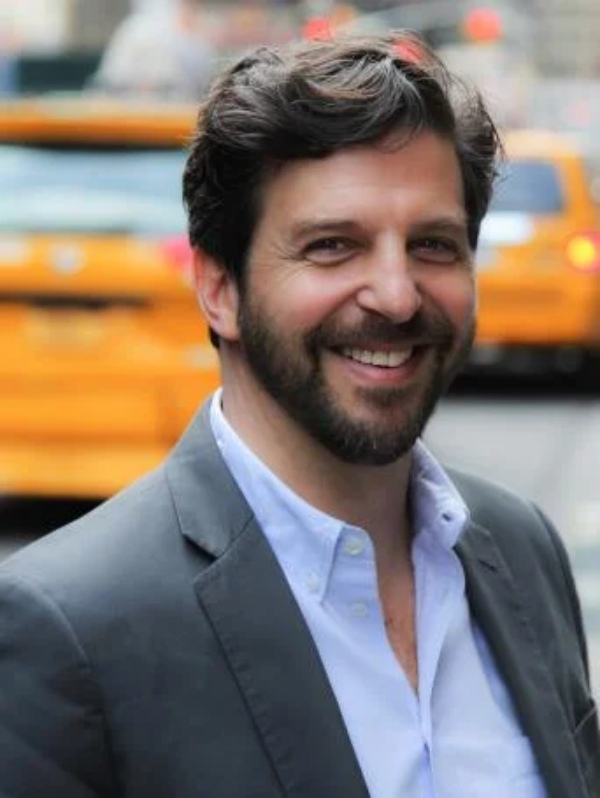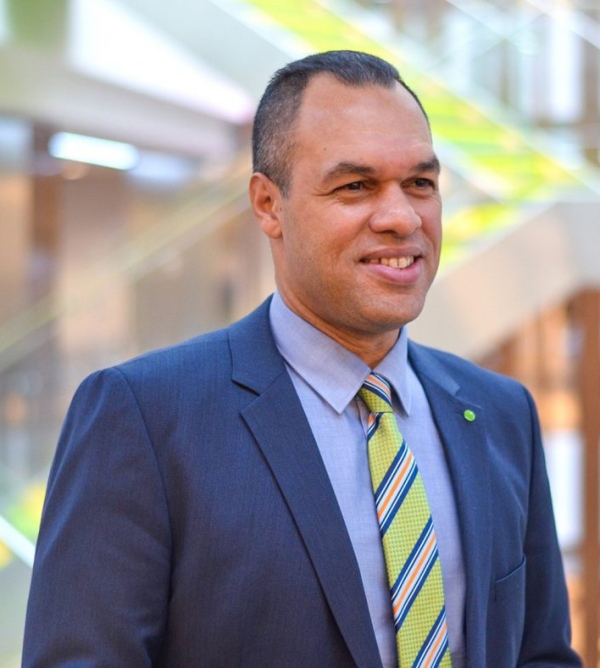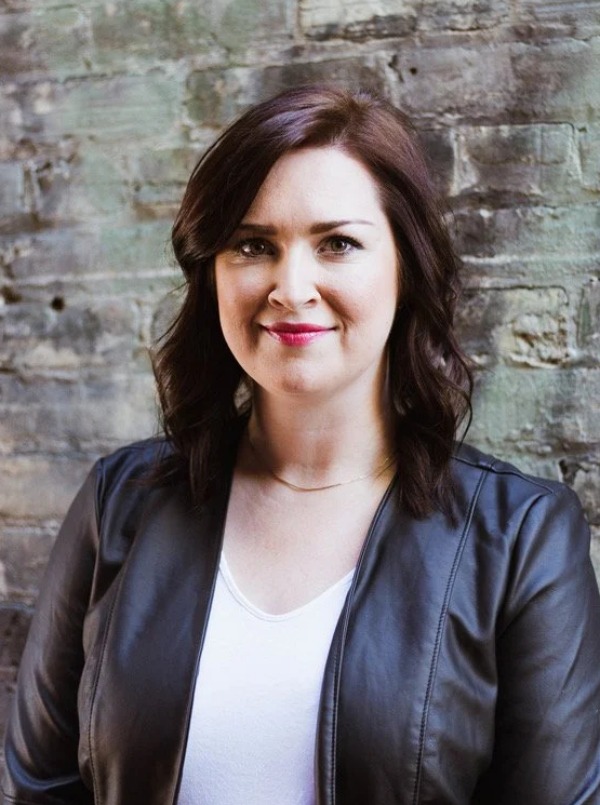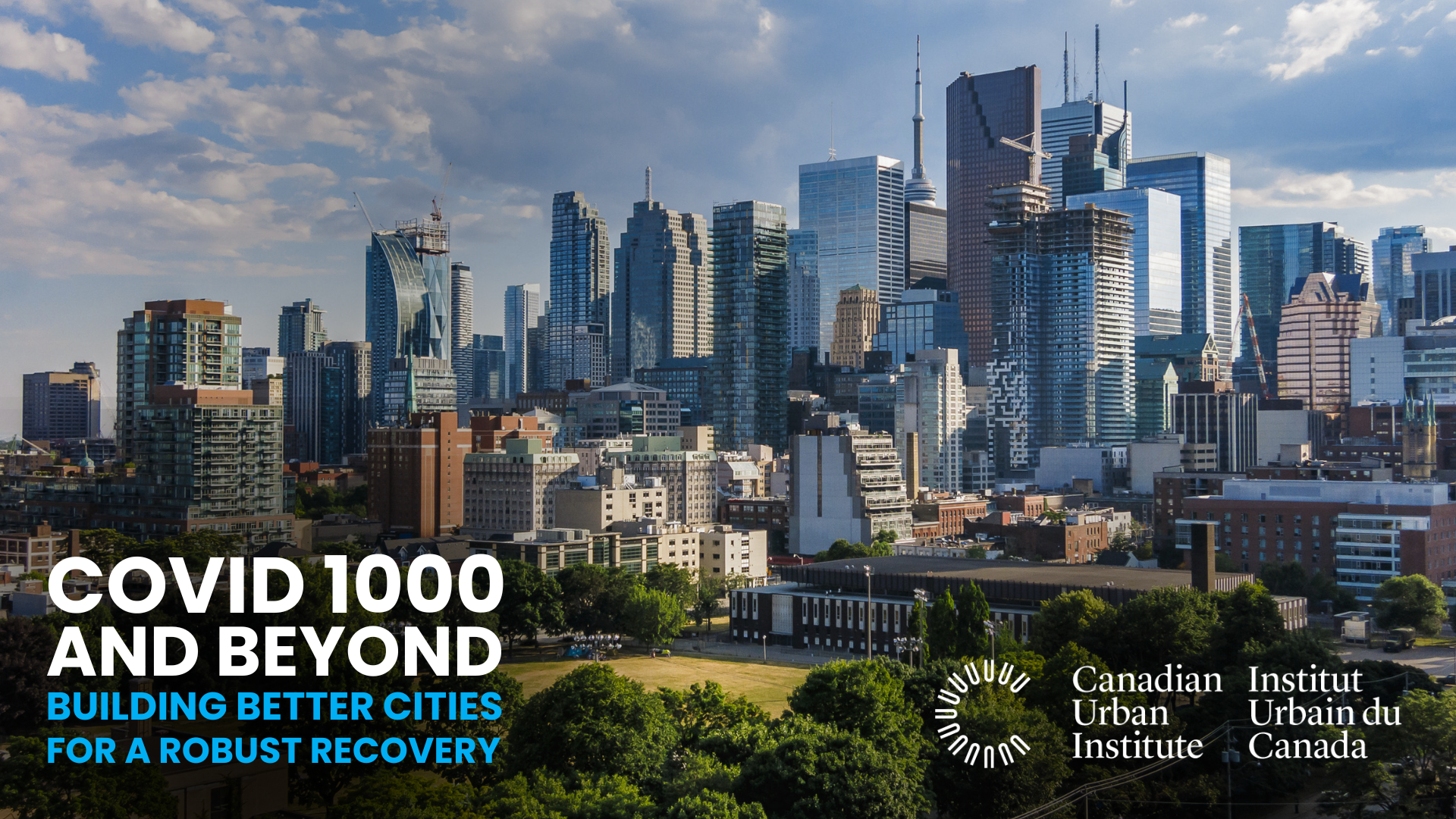Featured Guest
You’ll find this guest among our growing roll of Urban Champions.
-

Tim Tompkins
Principal, SharedCitySharedSpace
-

Peter Sloly
Former Chief of Police, City of Ottawa
-

Marcy Burchfield
Vice President, Economic Blueprint Institute, Toronto Region Board of Trade
-

Kate Graham
Senior Advisor, Colliers Project Leaders
-

Graham Singh
Executive Director, Trinity Centres Foundation
-

Bruce Katz
Co-Founder, New Localism Advisors
-

Alicia John-Baptiste
President & CEO, SPUR
5 Key Takeaways
A roundup of the most compelling ideas, themes and quotes from this candid conversation
1. Insights on the future of cities.
Kate Graham shared insights from CUI’s recent survey, where city builders were invited to respond on how cities could improve in light of the COVID pandemic’s many lessons.
Key observations from the survey results:
- In “normal times,” there’s often a bystander effect where people rely on others to take care of broader problems. During the pandemic, however, community members stepped up to fill in the gaps, with survey respondents citing Vaccine Hunters and “Care-Mongering” groups as emblematic of this spirit.
- Immense movement on intractable problems was suddenly possible. Basic income in Canada has been discussed for decades, while CERB was implemented in a matter of days. “There is an expectation now that governments are able to move faster and respond to issues much quicker, because the fallacy of government moving slowly was removed,” said Graham.
- Respondents reported that small cracks can become major catastrophes in times of crisis, with collaboration between sectors and communities frequently cited as the “secret sauce” solution.
- Graham discussed the “DIY city” concept where people have the agency and ability to solve problems and step outside their traditional roles to address urban challenges. “The call to action for cities going forward is to keep our foot on the gas and push as hard as we can—not just in responding to the pandemic but urban crises generally.”
2. Our desire for community connection has a major impact on the places we live.
Alicia John-Baptiste, President & CEO of San Francisco-based SPUR, observed that throughout the pandemic, “the places that performed the best were the ones where people could access their connections to other people.” Areas with the most dense, mixed-use offerings performed well, while places like Downtown San Francisco, which are primarily office-based, have not recovered their role as a centre point for the region.
“What was drawing them together was both where folks felt like they belonged, and also where they found cultural vibrancy,” said John-Baptiste. “And so, as we think about how we reconceive our cities in this era of choice, we need to be focused on community connection, and cultural vibrancy as the path forward from a planning and land use standpoint.”
In the face of growing extremism and political polarization, Graham Singh, Founder and Executive Director of the Trinity Centres Foundation, advocated for the building and facilitating of genuine and authentic community networks as the most effective way of growing social cohesion. To strengthen these networks, Singh suggested mobilizing partners within multiple layers of government, the nonprofit sector, and the social services to address the rising costs of occupying urban civic spaces that can foster these critical relationships.
3. The COVID pandemic exacerbated numerous “subset pandemics.”
CUI Fellow Peter Sloly spoke of the multiple “subset pandemics” which include crises in mental health and addictions, economic instability, and impacts on racialized and marginalized communities. A former Police Chief, Sloly also spoke of the “pandemic specific to policing” and the massive disruption resulting from the murder of George Floyd. As a result, people took on a more active role in addressing issues like the opioid crisis, and became more keenly aware of issues around public safety and public health. They engaged in constructive activities that led to a range of better outcomes that complemented the work of the police.
Sloly also spoke to the impediments that prevent the modernization of Canada’s justice system, and called for more effective integration between the health, education, and policing system to respond to the urgent desire for change while recognizing institutional and individual burnout.
4. Instead of a “new normal,” we’re entering a period of “new disorder” where urban networks have unprecedented power.
Citing the new remote work supply chain, the exacerbation of racial and ethnic disparities, the climate crisis, the growing financialization of housing, and geopolitical issues such as the Russian invasion of Ukraine, CUI Fellow Bruce Katz of the Nowak Metro Finance Lab at Drexel University described our current reality as the “new disorder” rather than “new normal,” one that offers us a crash course in a “new localism.”
“We don’t really know how to respond to this, because responsibility is divided and fragmented across different layers of government and different sectors of society—no one’s in charge,” said Katz. “The only folks who can bring any order out of this are city networks, metropolitan networks, and civic and public organizations that understand the challenges their own place.”
5. Urban stewards need to understand what they’re competing against.
According to Tim Tompkins, Principal at SharedCitySharedSpace, the pandemic was “a reminder that cities fundamentally still must compete.” Noting that we’re heading into a time where there will be incredible economic and fiscal stress on cities, Tompkins spoke of difficulties that national and local governments have in solving long-term problems such as affordable housing and transit access, and the critical importance of the public realm in ensuring whether people want to stay, or go, from cities.
Full Panel
Transcript
Note to readers: This video session was transcribed using auto-transcribing software. Questions or concerns with the transcription can be directed to events@canurb.org with “transcription” in the subject line.
Full Audience
Chatroom Transcript
Note to reader: Chat comments have been edited for ease of readability. The text has not been edited for spelling or grammar. For questions or concerns, please contact events@canurb.org with “Chat Comments” in the subject lin
From Canadian Urban Institute: You can find transcripts and recordings of today’s and all our webinars at https://canurb.org/citytalk
12:01:44 From Alex Tabascio (CUI) To Everyone:
Marcy Burchfield — Incoming Vice President, Transit Planning, Metrolinx, Toronto Marcy has worked at the forefront of regional planning for nearly two decades, influencing transportation, land use, and environmental and economic development policy; using a unique placed-based, data driven lens to understand metropolitan scale problems. She is a champion of regional collaboration and is respected for her ability to bring cross-sectoral stakeholders together. Prior to joining Metrolinx, Marcy was the Vice President of the Economic Blueprint Institute (EBI), a strategic initiative of the Toronto Region Board of Trade with a mandate to strengthen and influence its regional policy agenda through data driven insights. Marcy also led the Neptis Foundation think tank where she drove the conceptualization and development of the Neptis Geoweb, a unique web-based mapping and informatics tool used to inform engaged stakeholders and the public on complex policy matters.
12:01:54 From Alex Tabascio (CUI) To Everyone:
Kate Graham — Senior Advisor, Colliers, London Kate researches, writes, speaks and teaches about politics in Canada and supports municipal governments across the country in areas of governance, council-staff relations, decision-making and priority-setting. She holds a PhD in Political Science and teaches at Huron University College and Western University. Before entering academia, Kate spent a decade working in local government, most recently as the Director, Community & Economic Innovation at the City of London. She was the youngest member of the senior leadership team and received a Top 20 Under 40 award for her work in this role. She is a three-time published book author including as co-author of the textbook, Local Government in Practice: Cases in Governance, Planning and Policy (2019). Kate is an active politico, including running for Leader of the Ontario Liberal Party in 2020 and leading the party’s platform in 2022.
12:02:06 From Alex Tabascio (CUI) To Everyone:
Alicia John-Baptiste — President and CEO, SPUR, San Francisco Alicia John-Baptiste is the president and CEO of SPUR. A seasoned leader and public policy professional, Alicia has over 20 years of experience reimagining systems to create better outcomes for people. Prior to her time at SPUR, Alicia developed deep appreciation for local government and its commitment to the collective good while serving in leadership roles for the City and County of San Francisco, most recently as Chief of Staff at the San Francisco Municipal Transportation Agency. Locally and nationally recognized for her public policy expertise, inspirational perspective and creative approach to systems change, Alicia focuses her talents and experience on building shared dreams.
12:02:16 From Nick Hanson (CUI) To Everyone:
Welcome to this next panel, Making Better Cities
12:02:21 From Alex Tabascio (CUI) To Everyone:
Peter Sloly — Canadian Urban Institute Fellow, Ottawa Peter Sloly is the CEO of “Sloly Solutions Inc.” and is a “Visiting Fellow, Change Maker in Residence” at University of Toronto’s Massey College. Peter has enjoyed three very successful careers; a professional athlete, a Partner in a professional services firm; and as a police officer who served at every rank including police chief. Peter has an Master’s in Business Administration and is a graduate of the FBI’s “National Academy” and the Canadian Forces College “National Strategic Security Studies” program. Over the course of his working life, Peter has travelled to four continents and over forty countries, including two tours of duty in the United Nations Peacekeeping Mission in Kosovo. Peter leverages his deep knowledge, vast experience, and broad network to provide trusted advice, impactful services, and thought leadership to help organizations achieve differentiated outcomes to build a safer, more inclusive, and more just society.
12:02:33 From Alex Tabascio (CUI) To Everyone:
Graham Singh — CEO, Trinity Centres Foundation, Montreal Graham is the founder and CEO of the Trinity Centres Foundation, a new Canadian charity established to transform 100 historic city centre church buildings into community hubs. TCF’s team of 50+ advisors from the social innovation, property finance, urbanism and faith sectors are currently developing what may become one of Canada’s most significant social purpose real estate investment offerings. Over the past 12 years, Graham has led four historic building and community renewal projects in the United Kingdom and Canada, including in his current role as Rector of the Anglican Diocese of Montreal’s recent church plant, St Jax Montreal. Graham also acts as a consultant in the area of social impact investing in the private wealth management sector. He is a regular speaker and author in areas of urbanism, social finance, heritage, adaptive re-use of churches and social purpose real estate.
12:02:44 From Alex Tabascio (CUI) To Everyone:
Tim Tompkins — Former President, Times Square Alliance, New York City Tim Tompkins has worked for over three decades to understand and improve cities, with an emphasis on neighborhood-driven economic development, place management, public art, and public-private partnerships. In 2022 he created SharedCitySharedSpace which nurtures the interaction of ideas, institutions, individuals and culture —through public, private and civic sector collaboration —to make more prosperous, vibrant and equitable cities. He is currently an Adjunct Professor of Urban Planning at the Wagner School of Public Service at New York University. Tim was President of the Times Square Alliance, one of the nation’s pre-eminent Business Improvement Districts (BIDs), from 2002-2020. While at the Alliance, he created Times Square Arts, the first fully-staffed, full-time public art program by a BID in the nation. Tim was the Founding Director of the award-winning Partnerships for Parks and subsequently co-led Parks 2001.
12:06:09 From Karen DW To Everyone:
could someone please share the link to the survey?
12:06:17 From Alex Tabascio (CUI) To Everyone:
Bruce Katz — Director, Nowak Metro Finance Lab, Drexel University, Washington D.C. Bruce Katz is the Co-Founder and inaugural Director of the Nowak Metro Finance Lab. He regularly advises global, national, state, regional and municipal leaders on public reforms and private innovations that advance the well-being of metropolitan areas and their countries. He is the co-author of two books that focus on the rise of cities and city networks as the world’s leading problem solvers: The New Localism: How Cities Can Thrive in the Age of Populism and The Metropolitan Revolution: How Cities and Metros are Fixing Our Broken Politics and Fragile Economy. Bruce was the inaugural Centennial Scholar at the Brookings Institution (2016-2018) where he focused on the challenges and opportunities of global urbanization. Prior to assuming this role, he was a vice president at the Brookings Institution and founding Director of the Brookings Metropolitan Policy Program.
12:06:42 From Jennifer Barrett To Everyone:
https://covidsignpost.ca/covid-1000-survey
12:07:05 From Nick Hanson (CUI) To Everyone:
If you would still like to submit your thoughts for this project, we’d love to hear from you. https://www.videoask.com/fl08870zk
12:07:25 From Nick Hanson (CUI) To Everyone:
^^ Karen DW: there’s the survey link.
12:07:54 From Karen DW To Everyone:
thank you
12:08:41 From Lanrick Bennett To Everyone:
#CovidIsntOver It is wild to think about 1000+ days of how our cities (and the people living, learning, working and trying to play in them) have handled Covid. Here comes the deep dive via Kate! Can we Build Back Better?
12:12:22 From Jared Kolb To Everyone:
Does ‘burnout’ fit within cracks becoming chasms or elsewhere? Anecdotally, of the three friends of mine who were ER nurses at the outset of the pandemic, each of them have switched to administrative or part time non ER roles…
12:13:55 From Robert Plitt To Everyone:
we accepted that we were in crises and manufactured responses – how can we maintain the collective awareness that we remain in crises? crises of equity, climate, housing, mobility, reconciliation, mental health, seniors care, etc.
12:14:18 From Downtown Halifax To Everyone:
Richard Florida says innovation always follows these sorts of crises. However, exhaustion is a very common thing – do people, org, govts have the energy to be innovative now?
12:15:50 From Kim Ryan To All Panelists:
Urbanized rural girl here- I want to live in distraction and connect with others who r challenged. Kids r suffering now. Lockdown were necessary but government can change and it is not as scary.
12:16:06 From Abby S To Everyone:
The energy against banning strikes in public sector did seem to not only create mobilization but changed the course of legislation. I hope the same efforts will continue. It seems focused issues create more energy than generalized problems which are so hard to focus on.
12:16:34 From Abby S To Everyone:
And where individuals feel impotent.
12:17:19 From Jared Kolb To Everyone:
Great point Abby about focused issues creating more issues than generalized problems especially as we exit 2022.
12:25:02 From Zahireen Tarefdar (CUI) To Everyone:
Further readings on the use of technology in criminal justice:
https://www.brookings.edu/research/understanding-risk-assessment-instruments-in-criminal-justice/
12:27:35 From Jennifer Barrett To Everyone:
I’ve always been struck that in many crises we reach out to people for help and we work collaboratively in physical proximity. But the risk of COVID as a public health crisis encouraged us to stay physically apart and this tendency may continue with WFH, less use of public transit, etc. This creates a risk that we have fewer opportunities to connect with people who are not like us, causing further social and economic separation.
12:28:21 From Lanrick Bennett To Everyone:
Policing, the actual Police Force within the urban context will be a particular battlefield going forward across Canada. Reimagine community safety is a tall order. Toronto had it’s awakening moment and the fixes will not be easy https://www.ohrc.on.ca/en/news_centre/ohrc-statement-toronto-police-service-announcement-race-based-data-collection-findings
12:29:08 From Nick Hanson (CUI) To Everyone:
Non-Profits Experience a Shortage of Volunteers in Summer 2022
https://www.volunteertoronto.ca/news/616345/Non-Profits-Experience-a-Shortage-of-Volunteers-in-Summer-2022-.htm
12:29:29 From Zahireen Tarefdar (CUI) To Everyone:
I was just looking for that link Lanrick — thanks for sharing!
12:30:47 From Lanrick Bennett To Everyone:
ZT here you go RACE-BASED DATA COLLECTION, ANALYSIS AND PUBLIC REPORTING https://www.tpsb.ca/policies-by-laws/board-policies/177-race-based-data-collection-analysis-and-public-reporting and https://www.tps.ca/race-identity-based-data-collection/
12:31:17 From Jennifer Barrett To Everyone:
On the federal social finance fund: https://www.canada.ca/en/employment-social-development/programs/social-innovation-social-finance/social-finance-fund.html
12:33:06 From Lanrick Bennett To Everyone:
Graham Singh you need to write a book on utilizing Cultural Hubs. Churches and Libraries! Palaces for the People Part Two!https://99percentinvisible.org/episode/palaces-for-the-people/
12:34:56 From Charles Ketchabaw To Everyone:
I would read that book!
12:37:12 From Graham Singh | trinitycentres.org To Everyone:
Lanrick/Charles/Rita, you are all very kind 🙂 Point taken! In the meantime, you may find this reading list to be helpful: https://trinitycentres.org/en/media
12:37:19 From Alex Tabascio (CUI) To Everyone:
Report on Financialized Landlords https://www.homelesshub.ca/sites/default/files/attachments/Lewis-Financialization-Racialized-Impacts-ofha-en.pdf
12:37:28 From Kim Ryan To All Panelists:
It’s is the urbanization of population density and needs, but more single families homes push the demand of homeless population being pushed out of market, and all for high rises, in many cities. Many homes r being tore down, and condos built.
12:38:38 From robert barnard To Everyone:
I’d be keen to hear thoughts on the massive generational inequity in Canada that accelerated during Covid. Young people sacrificed 25% of their formative years for older generations. What have they received in return? Zero thanks, a housing and affordability crisis and being stuck on your bed as your office instead of in actual offices.
12:39:02 From Nick Hanson (CUI) To Everyone:
Bruce Katz writes an excellent newsletter about urban issues:
https://www.thenewlocalism.com/newsletters/
12:39:40 From LOCO BC To Everyone:
Curious what you think about how the financialization of housing affects businesses. Not only in terms of housing for workers but the impact on the cost of commercial spaces.
12:39:51 From Zahireen Tarefdar (CUI) To Everyone:
A 2020 deep dive on the financialization of housing, relevant to the US:
https://www.nytimes.com/2020/03/04/magazine/wall-street-landlords.html
12:40:01 From Downtown Halifax To Everyone:
Go Tim!
12:40:24 From Zahireen Tarefdar (CUI) To Everyone:
A simple guide on the topic, more relevant to Canada:
https://www.housingchrc.ca/en/financialization-housing
12:40:37 From Downtown Halifax To Everyone:
Ed Glaesar would be a good future panelist. Have not heard him post-pandemic.
12:41:31 From Bruce Katz To Everyone:
We are also seeing the financialization of commercial corridors … changing the character of these areas as well
12:42:45 From Sherwin Lau To All Panelists:
The Financialization of creating suburban sprawls was documented in Robert Putnam’s Bowling Alone book from the 2000s. When homebuyers don’t have stakes in long term community development, and only interest in short term holds, it creates rippling long term effects on social capital, civil society engagement, municipal affairs, and schools—something that all residents care about because it’s a RS price valuator.
12:44:42 From Bruce Katz To Everyone:
Here’s our research on parasitic capital // investor purchases of single family homes– https://www.thenewlocalism.com/newsletter/investor-home-purchases-and-the-rising-threat-to-owners-and-renters/
12:48:18 From Lorena Zárate To All Panelists:
yes! focusing on the many possible ‘how’ can help us addressing the many fundamental and urgent ‘what’ – we all know the multiple ‘why’, right?
12:50:05 From Nick Hanson (CUI) To Everyone:
Alicia John-Baptiste is President and CEO of SPUR. They just released an insightful report about impact of flexible work on downtowns:
https://www.spur.org/news/2022-11-22/flexible-work-has-reshaped-downtown-san-francisco-how-will-city-embrace-new-normal
12:50:17 From Nick Hanson (CUI) To Everyone:
Thanks to this session’s panellists:
• Marcy Burchfield—Incoming Vice President, Transit Planning, Metrolinx, Toronto
• Kate Graham—Senior Advisor, Colliers, London
• Alicia John-Baptiste—President and CEO, SPUR, San Francisco
• Bruce Katz—Director, Nowak Metro Finance Lab, Drexel University, Washington D.C.
• Peter Sloly—Canadian Urban Institute Fellow, Ottawa
• Graham Singh—CEO, Trinity Centres Foundation, Montreal
• Tim Tompkins—Principal, ShareCitySharedSpace, New York City
12:50:43 From Lorena Zárate To Everyone:
yes! focusing on the many possible ‘how’ can help us addressing the many fundamental and urgent ‘what’ – we all know the multiple ‘why’, right?
12:51:26 From Graham Singh | trinitycentres.org To Everyone:
My parting thoughts are that: there is a ‘social finance’ solution to some of these problems. How could we make sure that, in an ‘outcomes market’ we can properly define and measure the deliverables of local stakeholder engagement. This work is VALUABLE however we do not yet clarify the MARKET for it. The federal government is on the case for this and it’s a great place for us to lean into!! Thank you so much everyone!
12:52:29 From Carolyn Whitzman To Everyone:
Multiple crises (racism and anti-Indigenous violence, active and sustainable transit, public space, housing precarity and homelessness), hm, is it time to centre neo-liberalism as a barrier? https://policyalternatives.ca/publications/commentary/covid-19-didn%E2%80%99t-kill-neoliberalism-we-must-do-it-ourselves



